Ever stood in the grocery store staring at dozens of egg cartons, wondering which ones are worth your money? Not all eggs are created equal, and the difference between good and bad brands can impact both your health and the welfare of chickens.
Here’s your ultimate guide to navigating the egg aisle with confidence—brands that truly deliver quality and others you might want to skip.
1. Vital Farms
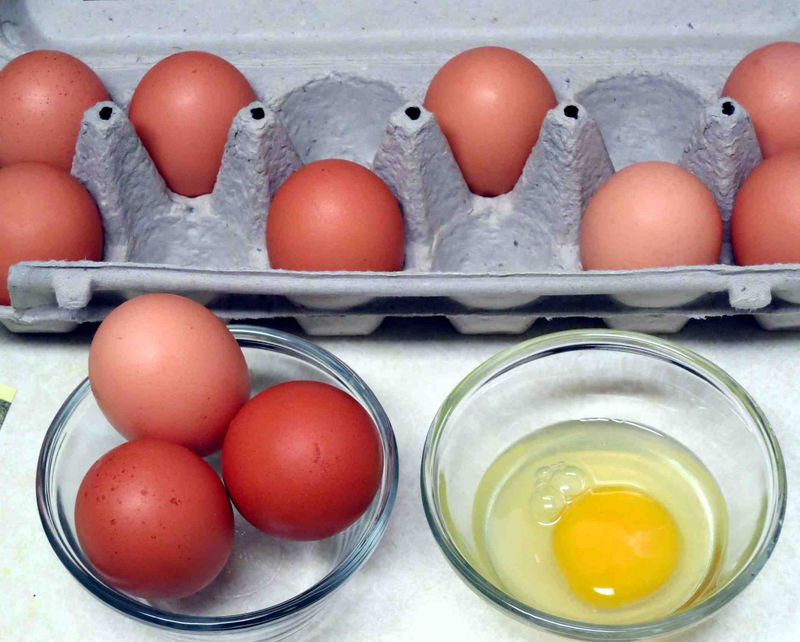
These eggs come from hens roaming on small family farms with at least 108 square feet per bird. The rich, orange yolks tell the story of their superior nutrition.
Vital Farms has revolutionized commercial egg production by proving pasture-raised can work at scale while maintaining high ethical standards.
2. Pete And Gerry’s
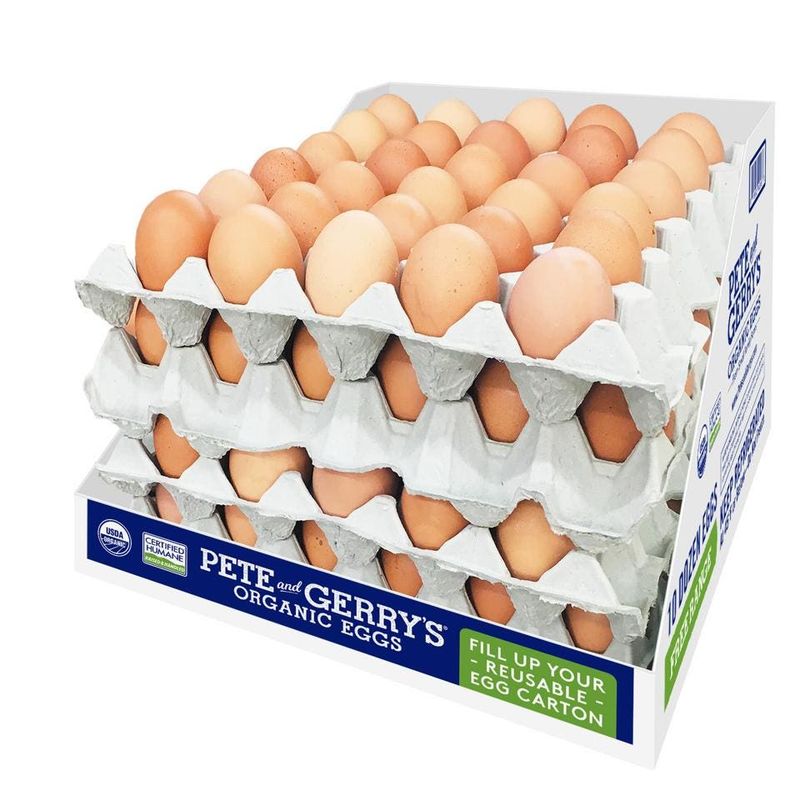
Family-owned and operated, Pete and Gerry’s partners with small farmers who raise Certified Humane hens. Their commitment shows in every aspect of production.
The distinctive blue-speckled cartons contain eggs from chickens that never see cages and have access to the outdoors, resulting in noticeably better taste.
3. Happy Egg Co.
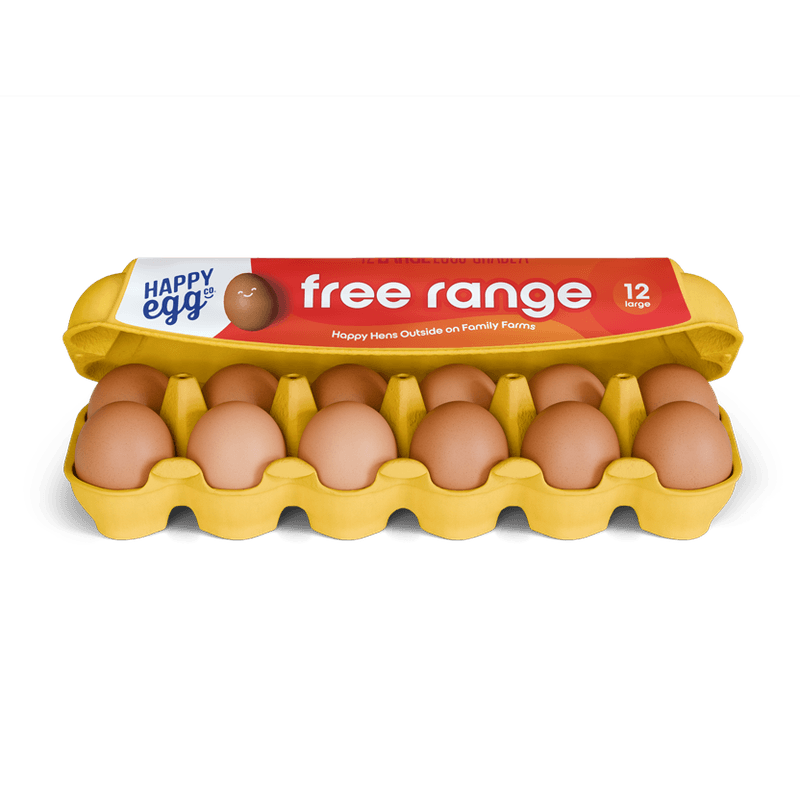
Bright yellow packaging matches the sunny disposition of their free-range hens. Each bird gets over eight square feet of outdoor space to scratch, peck, and dust bathe naturally.
The company’s True Free Range™ standards exceed many industry certifications, resulting in eggs with vibrant yolks and exceptional flavor profiles.
4. 4-Grain From Organic Valley
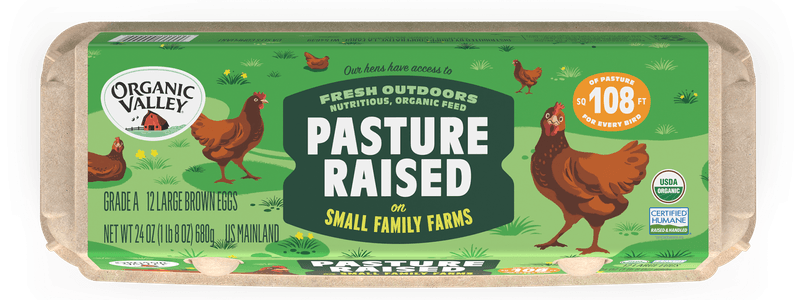
Farmer-owned cooperative Organic Valley ensures their hens feast on a special four-grain mix of corn, oats, barley, and wheat. This diet creates remarkably flavorful eggs with sturdy shells.
Their commitment to small family farms means your breakfast supports sustainable agriculture while delivering premium taste and nutrition.
5. Handsome Brook Farm
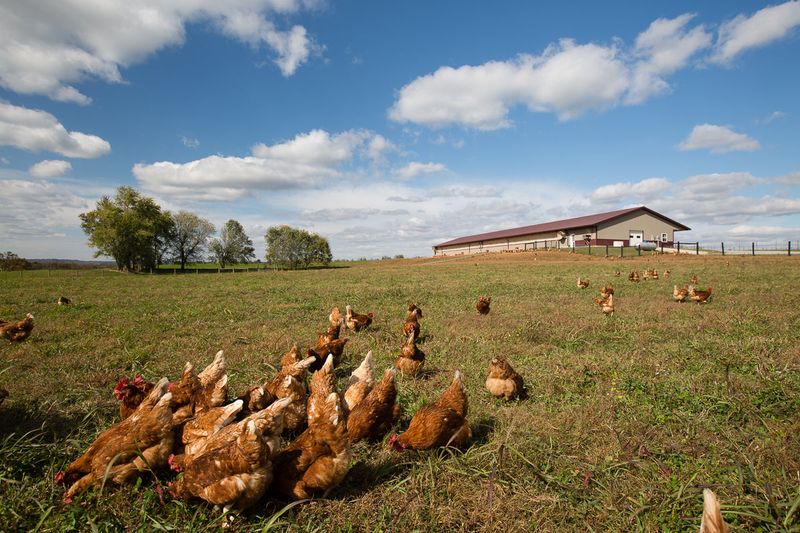
Founded by a couple who started with just five hens, Handsome Brook has grown while maintaining unwavering ethical standards. Their pasture-raised eggs come from hens with year-round outdoor access.
The company works exclusively with small family farms, ensuring each location maintains their rigorous animal welfare and environmental practices.
6. Nellie’s
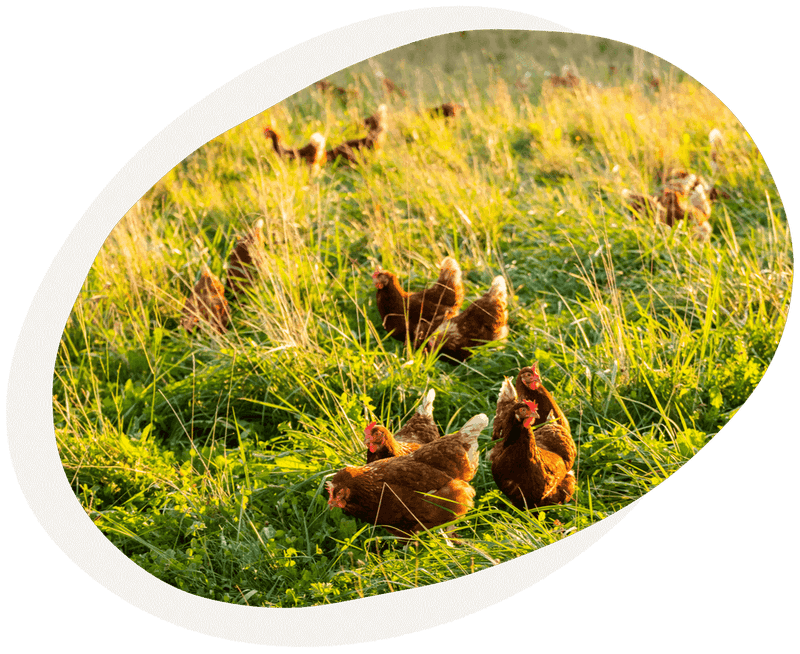
As the first Certified Humane egg producer in America, Nellie’s has been setting standards for decades. Their hens enjoy abundant outdoor space with cozy barns for nighttime safety.
The playful packaging featuring the real Nellie (a heritage-breed hen) represents their authentic approach to producing eggs with integrity and exceptional flavor.
7. Farmer’s Hen House
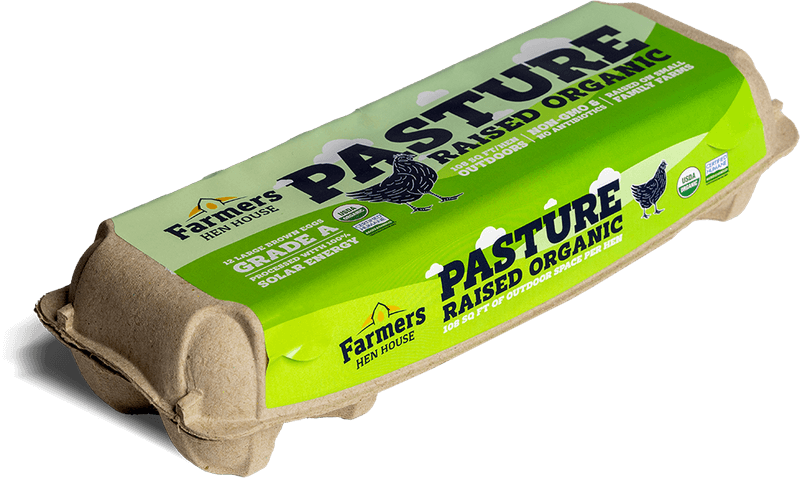
Primarily sourced from small Amish and Mennonite farms, these eggs represent generations of farming wisdom. The hens enjoy organic feed and genuine outdoor access on family-run operations.
Their carbon-neutral certification takes sustainability beyond just humane treatment, addressing the environmental impact of egg production from farm to table.
8. Kirkland Organic

Costco’s house brand delivers surprising quality at bulk pricing. These USDA Organic certified eggs come from hens fed a vegetarian diet without antibiotics or hormones. While not pasture-raised, they maintain higher standards than most conventional eggs.
The certification ensures no synthetic pesticides or fertilizers in feed, making them a solid choice for budget-conscious shoppers.
9. Great Value
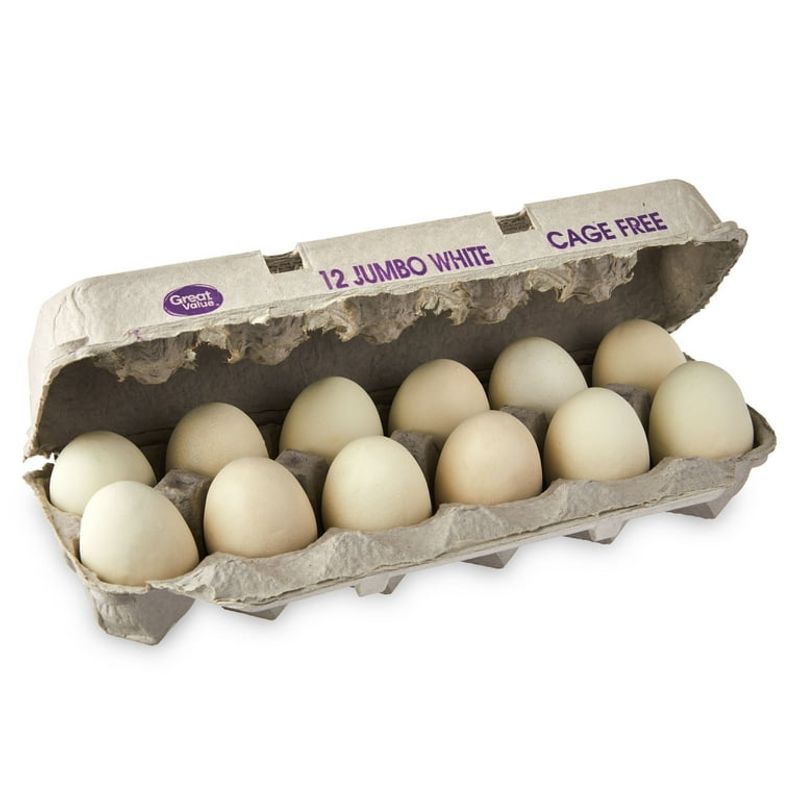
Walmart’s budget brand typically sources from conventional factory farms where hens live in cramped battery cages. The pale yolks reveal the nutritional shortcomings of this cost-cutting approach.
Despite the low price tag, these eggs come with hidden costs: questionable animal welfare, reduced nutritional value, and often a noticeable difference in taste and cooking performance.
10. Eggland’s Best (Conventional)
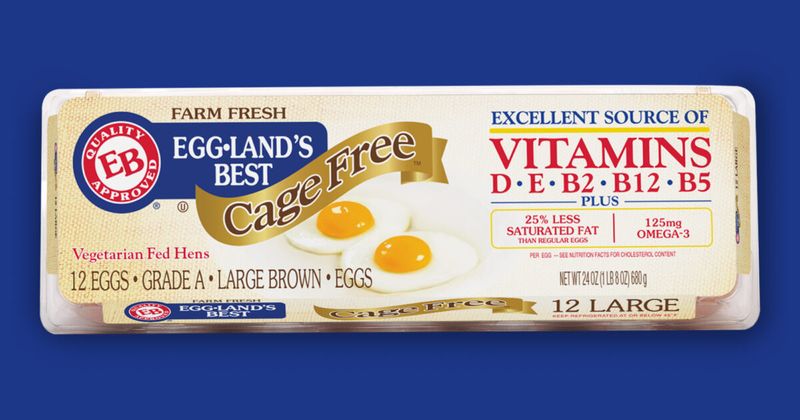
Despite clever advertising suggesting superior nutrition, conventional Eggland’s Best eggs often come from hens in standard industrial conditions. The proprietary feed may add some vitamins, but doesn’t address fundamental welfare issues.
Their organic line is better, but the standard offering falls short of truly ethical production, with questionable “cage-free” implementations that still restrict natural behaviors.
11. Market Pantry

Target’s house brand eggs typically come from conventional factory farms with minimal welfare standards. The inconsistent quality suggests varying suppliers focused more on price than practices.
Pale yolks and thin shells often indicate hens with restricted diets and movement. While conveniently available during your Target run, these eggs represent industrial production at its most basic.
12. Kroger Grade A
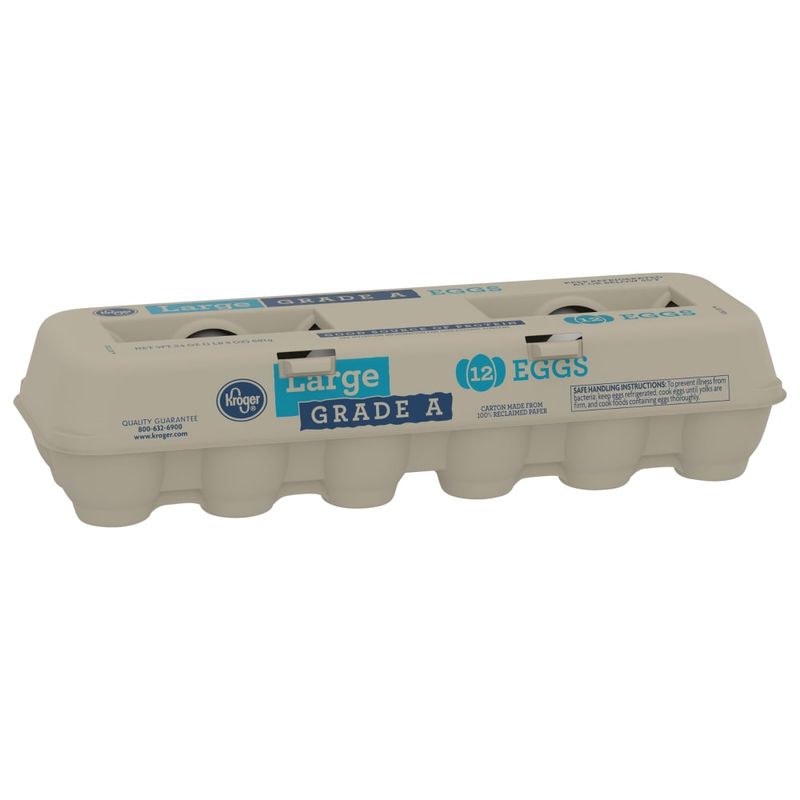
Standard Kroger eggs represent everything problematic about conventional egg production. Sourced from industrial operations where hens never see daylight, these eggs offer minimal nutritional benefits.
The inconsistent quality from carton to carton suggests multiple suppliers with varying standards. Even their “cage-free” options often implement bare-minimum space requirements that hardly improve welfare.
13. Lucerne
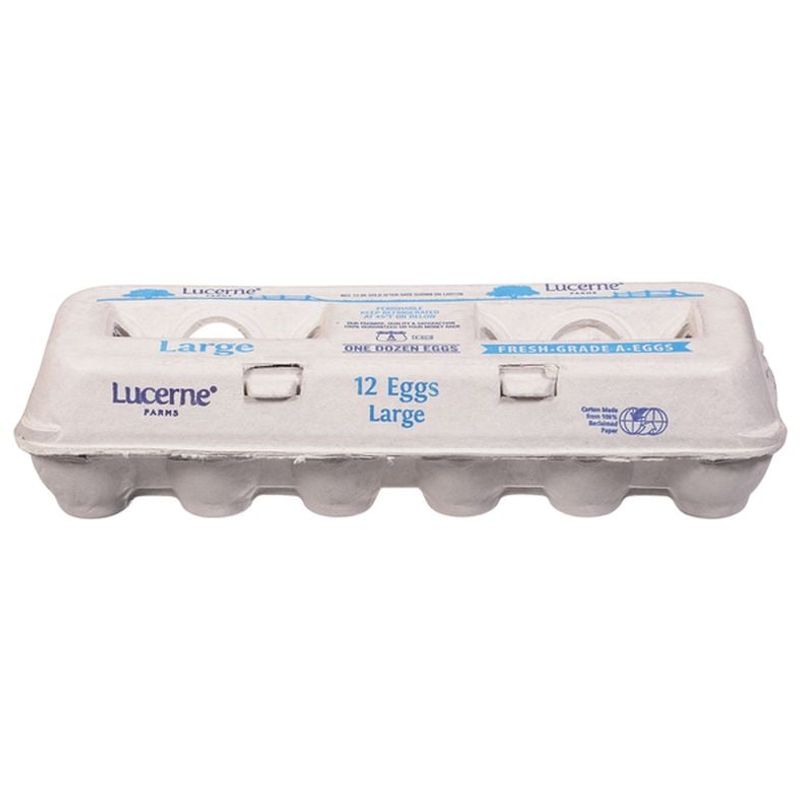
Albertsons/Safeway’s house brand typically sources from conventional farms using battery cages. The watery egg whites and fragile yolks indicate nutritional deficiencies from confined hens fed the cheapest possible diet.
Consumer reviews frequently mention inconsistent freshness and quality control issues. Even their “cage-free” options typically fall short of meaningful welfare improvements.
14. Best Choice

This generic brand supplied to numerous smaller grocers prioritizes rock-bottom pricing over all else. Sourced from conventional factory farms, these eggs come from hens in some of the most restrictive conditions in the industry.
The thin shells crack easily during transport, and the flavor profile is notably bland. Your breakfast deserves better than this bare-minimum approach to egg production.
15. Great Day
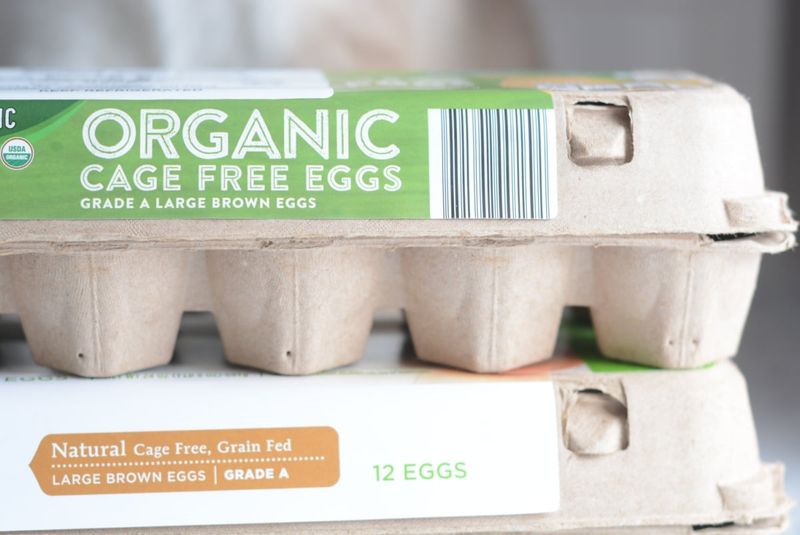
While ALDI excels in many store-brand categories, their conventional Great Day eggs miss the mark entirely. Sourced from industrial farms with questionable welfare standards, they represent the budget chain’s compromise on quality.
The pale, watery yolks lack the nutrients and flavor of properly raised hens. Skip these and splurge on ALDI’s organic options instead.
16. Hillandale Farms
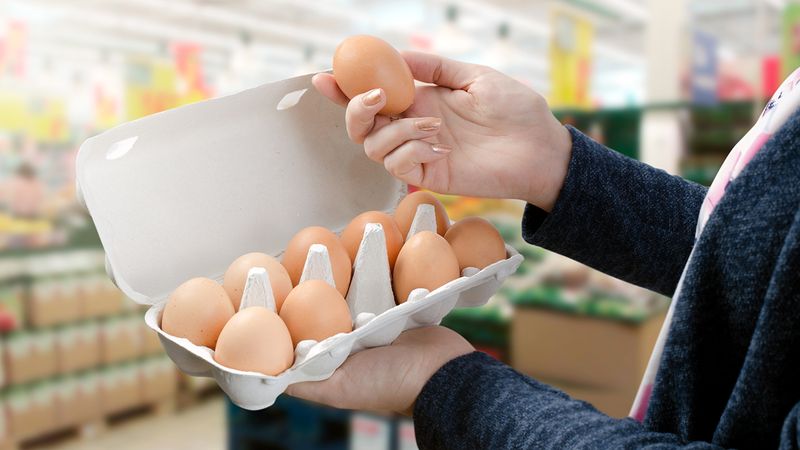
As one of America’s largest egg producers, Hillandale supplies numerous store brands and has faced multiple investigations for animal welfare violations. Their industrial approach prioritizes volume over quality or ethics.
After being implicated in major salmonella outbreaks, their food safety practices deserve scrutiny. These eggs represent everything wrong with treating egg production as a mass commodity.

